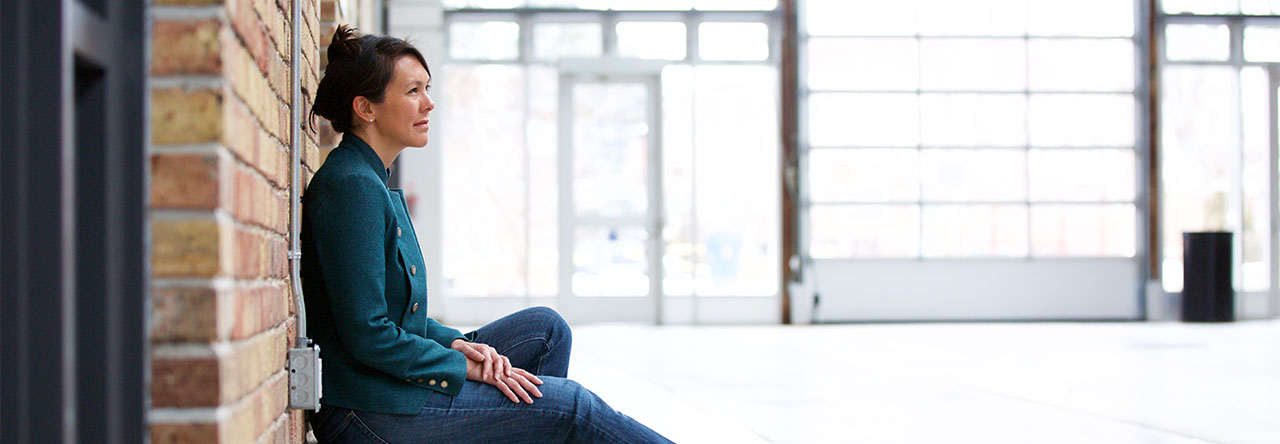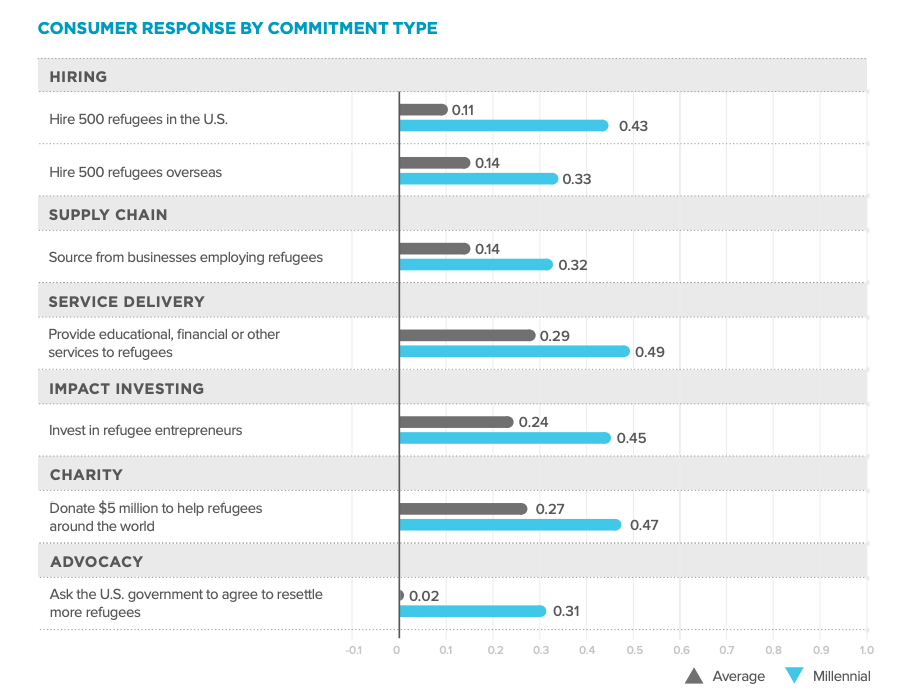Hamdi Ulukaya bought an abandoned yogourt factory in 2005. Today, Chobani is a $1.5 billion company, maker of the best-selling Greek yogourt in the U.S. Ulukaya’s path, from the son of nomadic Turkish sheep farmers to yogourt king is interesting in its own right. But it’s the success of Chobani twinned with Ulukaya’s work supporting refugees that makes him a different kind of CEO. Thirty percent of Chobani’s 2000+ employees are refugees.
To get other companies to commit publicly to supporting refugees, Ulukaya started Tent Partnership for Refugees. This morning, Tent released a research report authored by researchers at NYU Stern to give other businesses a good shove to take their own action on refugees. The study found that on the whole, you’ll have a net gain of customers if you take some action to support refugees, whether it be donating money, providing support services, or hiring them, as Chobani committed to do.
The online study of 7,139 U.S. respondents noted that women, non-whites, and Millennials were all more likely than the average to support you if you support refugees, findings that are in line with many other studies.
Knowing though, that not all businesses depend on the average American as their customer, the study noted that supporting refugees abroad, rather than in the U.S. was less polarizing, giving those companies that want to help but are afraid of a backlash, a way forward.
As with most research on consumer attitudes towards corporate and CEO activism, this study asks about buying intentions rather than actions, so there’s a significant caveat to the findings. Chobani itself probably has some of the best data on the impact on sales from the efforts of its CEO, but as it’s a private company, we’re unlikely to see it. And given how ingrained Ulukaya’s activism is embedded in the company brand now, it would be hard to extract the impact in a definitive way.
The data in Canada on attitudes to refugees and immigrants is all over the map. A Pew Research Center report in September said 74% of Canadians support taking refugees. By contrast, the live poll within a resulting Toronto Star story showed that 55% of the 1761 respondents did not. An Angus Reid poll in August said that they want the federal government’s 2018 target for immigration dropped, compared with 36% in 2014.
Suffice to say that if the data is so conflicting, it’s hard for a Canadian CEO to really know how customers are going to react if the company pledges support for refugees. (There’s an entire other question about how support for “refugees” and “immigrants” differs.) Perhaps that’s why the few CEOs (founders, really) willing to take public action to support refugees lead private companies.
Mohamad Fakih took the risk. The Lebanese-born immigrant started Paramount Fine Foods in Mississauga, Ont., and turned it into a 60+ Middle Eastern food restaurant chain. Like Ulukaya, Fakih has committed to hiring refugees, more than 150 in 2017.
Fakih is now working with the UNHCR to find more ways to help refugees build new lives in Canada, focused on employment and supporting new business launches.
“The private sector has a huge role to play in fostering better prospects for refugees in Canada – and it makes good business sense, too,” Fakih said in the news release. It’s fair to say that his activism has at least not gotten in the way of building his loyal customer base.
Without research that demonstrates more clearly the link between customer buying intentions to buying actions, however, public companies will be reluctant to take action, particularly given the incredibly risk averse profile of CEOs and boards in Canada. More to come on that another day.

